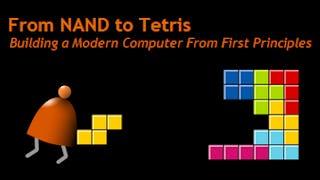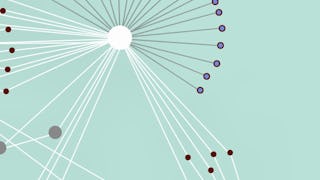Filter by
SubjectRequired
LanguageRequired
The language used throughout the course, in both instruction and assessments.
Learning ProductRequired
LevelRequired
DurationRequired
SkillsRequired
SubtitlesRequired
EducatorRequired
Explore the Knowledge Graph Course Catalog
 Status: Free Trial
Status: Free TrialKennesaw State University
Skills you'll gain: Six Sigma Methodology, Root Cause Analysis, Lean Methodologies, Data Collection, Process Improvement, Quality Improvement, Process Optimization, Lean Six Sigma, Correlation Analysis, Statistical Hypothesis Testing, Kaizen Methodology, Process Analysis, Probability Distribution, Regression Analysis, Process Capability, Business Process, Statistical Process Controls, Quality Management, Team Management, Continuous Improvement Process
 Status: Free Trial
Status: Free TrialÉcole Polytechnique Fédérale de Lausanne
Skills you'll gain: Scala Programming, Apache Spark, Apache Hadoop, User Interface (UI), Distributed Computing, Programming Principles, Big Data, Software Design, Data Structures, Software Design Patterns, Functional Design, Data Manipulation, Object Oriented Programming (OOP), Interactive Data Visualization, Computer Programming, Data Processing, Real Time Data, Visualization (Computer Graphics), Performance Tuning, Algorithms
 Status: Free Trial
Status: Free TrialUniversity of California, Irvine
Skills you'll gain: Grammar, Vocabulary, English Language, Multimedia, Content Creation, Writing, Photo/Video Production and Technology, Language Learning, Electronic Media, Oral Comprehension, Language Competency

Hebrew University of Jerusalem
Skills you'll gain: Computer Architecture, Computer Hardware, Computational Logic, Computer Programming, System Design and Implementation, Technical Design, Software Design, Program Development, Debugging, Verification And Validation, Development Environment
 Status: Free Trial
Status: Free TrialSkills you'll gain: Encryption, Identity and Access Management, Public Key Infrastructure, Endpoint Security, Cryptography, Network Security, Cybersecurity, Threat Detection, Cyber Attacks, Cryptographic Protocols, Data Security, Email Security, Computer Security Awareness Training, Advanced Encryption Standard (AES), Security Awareness, Secure Coding, Data Encryption Standard, Technical Support and Services, Information Technology, Cyber Security Strategy
 Status: Free Trial
Status: Free TrialUniversity of Illinois Urbana-Champaign
Skills you'll gain: Data Visualization Software, Text Mining, Data Presentation, Data Mining, Interactive Data Visualization, Data Storytelling, Dashboard, Tableau Software, Plot (Graphics), Natural Language Processing, Scatter Plots, Unsupervised Learning, Data Mapping, Unstructured Data, Statistical Analysis, Graphing, Big Data, Anomaly Detection, Analytics, Data Validation
 Status: Free Trial
Status: Free TrialSkills you'll gain: Git (Version Control System), GitHub, Version Control, Continuous Integration, Software Versioning, Software Development Tools, Code Review, Software Engineering Tools, Issue Tracking, Command-Line Interface, Debugging
 Status: Free Trial
Status: Free TrialSkills you'll gain: Dashboard, Pandas (Python Package), Data Visualization Software, Web Scraping, Jupyter, Matplotlib, Data Analysis, Data Science, Data Processing, Data Manipulation, Python Programming, Data Collection

The University of North Carolina at Chapel Hill
Skills you'll gain: Positivity, Resilience, Personal Development, Emotional Intelligence, Adaptability, Relationship Building, Psychology, Creativity, Mindfulness, Community Health

IIMA - IIM Ahmedabad
Skills you'll gain: Leadership, Organizational Leadership, Team Leadership, Change Management, Leadership and Management, Business Leadership, Business Ethics, Self-Awareness, Culture Transformation, Personal Development, Decision Making, Emotional Intelligence, Influencing, Empowerment, Communication, Relationship Building
 Status: Free Trial
Status: Free TrialKennesaw State University
Skills you'll gain: Statistical Process Controls, Statistical Hypothesis Testing, Process Capability, Team Management, Quality Improvement, Root Cause Analysis, Six Sigma Methodology, Lean Six Sigma, Lean Methodologies, Exploratory Data Analysis, Process Improvement, Quality Control, Probability & Statistics, Operational Excellence, Statistical Analysis, Process Analysis, Process Mapping, Correlation Analysis, Business Process Management, Data Analysis
 Status: Free Trial
Status: Free TrialUniversity of California, Irvine
Skills you'll gain: Time Management, Planning, Delegation Skills, Productivity, Organizational Skills, Multitasking, Resource Management, Prioritization, Personal Development, Goal Setting, Professional Development, Communication
Knowledge Graph learners also search
In summary, here are 10 of our most popular knowledge graph courses
- Six Sigma Yellow Belt: Kennesaw State University
- Functional Programming in Scala: École Polytechnique Fédérale de Lausanne
- Learn English: Intermediate Grammar: University of California, Irvine
- Build a Modern Computer from First Principles: From Nand to Tetris (Project-Centered Course): Hebrew University of Jerusalem
- Cybersecurity Fundamentals: IBM
- Data Mining: University of Illinois Urbana-Champaign
- Introduction to Git and GitHub: Google
- Python Project for Data Science: IBM
- Positive Psychology : The University of North Carolina at Chapel Hill
- Leadership Skills: IIMA - IIM Ahmedabad










